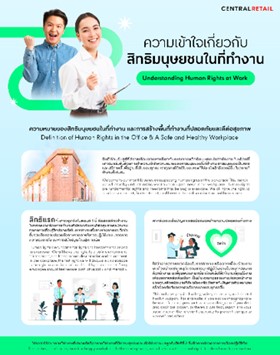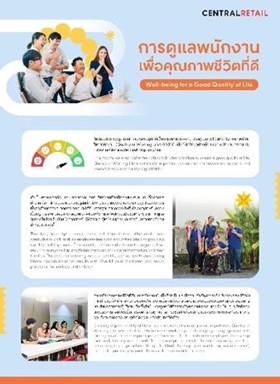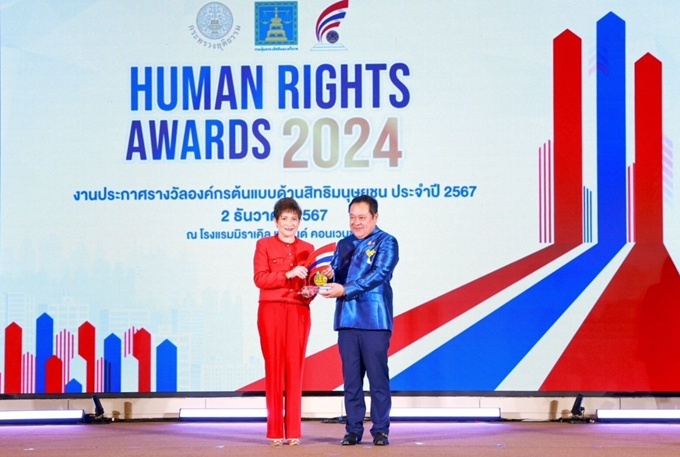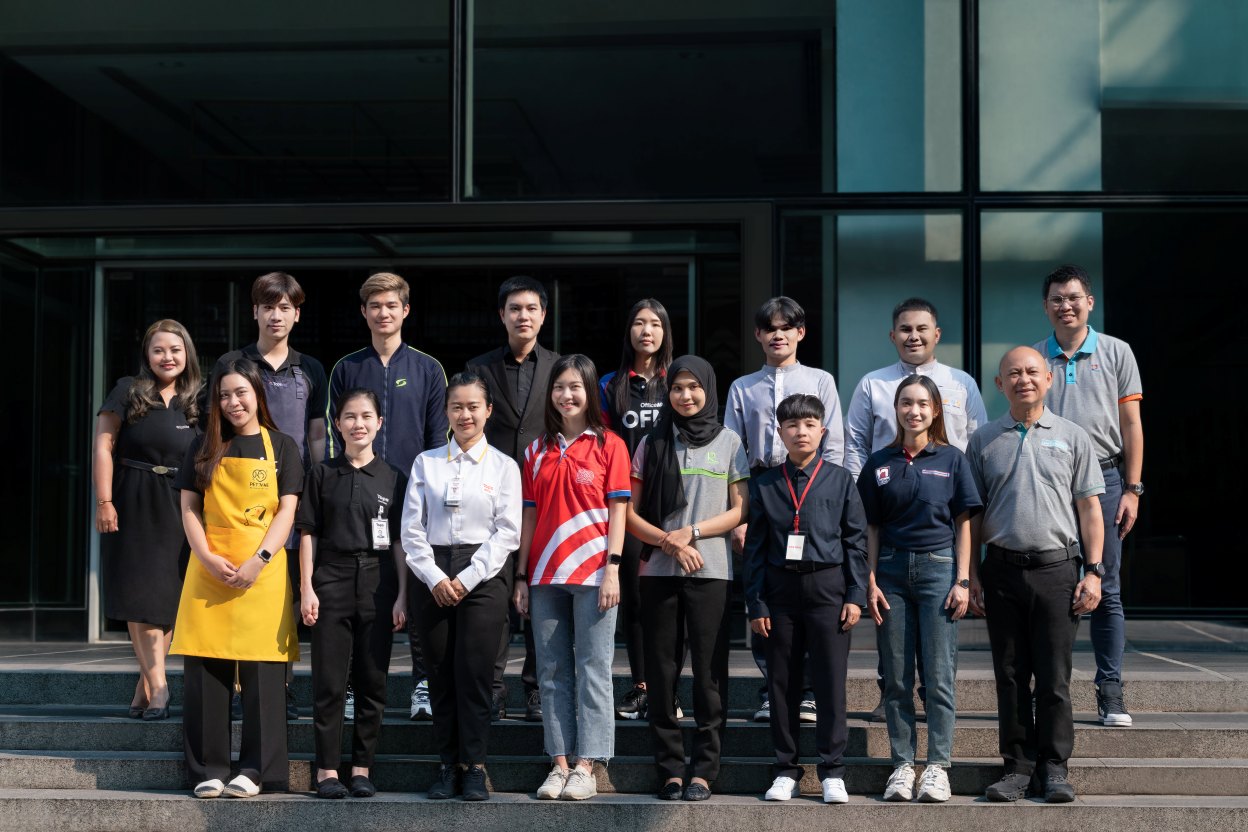Human Rights
Challenges and Opportunities
Conducting business with an emphasis on respecting and protecting human rights helps mitigate legal risks and potential complaints, such as unfair labor practices, child labor, and forced labor. If these issues arise, they may result in fines, lawsuits, and the loss of business opportunities. Establishing a safe and fair working environment including fair wages, adequate benefits, and workplace equality enhances employee engagement and productivity, reduces turnover rates, and attracts high-quality talent. Furthermore, encouraging business partners to uphold human rights principles reinforces a shared commitment and raises standards across the supply chain.
Beyond labor rights, human rights also encompass community and environmental rights. This includes the efficient use of resources, promotion of clean energy, pollution reduction, and responsible waste management. These practices help minimize negative impacts on public health, reduce legal disputes and opposition from civil society, and foster positive relationships with local communities. As a result, businesses that prioritize human rights contribute to a stronger corporate reputation and build trust among customers, investors, and business partners who value sustainable practices.
Central Retail recognizes the importance of respecting human rights across its value chain and operates in alignment with corporate ethics, legal requirements, regulations, and good governance principles. Central Retail’s Human Rights Policy upholds a zero-tolerance for discrimination and harassment, demonstrating a firm commitment to protecting employees at all levels from discrimination, threats, and both sexual and non-sexual harassment. This approach fosters an inclusive and supportive workplace culture.
Additionally, Central Retail conducts comprehensive human rights impact assessments, addressing both actual and potential risks, to ensure that all stakeholders are considered. Proactive measures and remediation strategies aligned with international standards are implemented to ensure sustainable business growth based on social and environmental responsibility.
Management Approach
Human Rights Governance Structure
Central Retail's Human Rights Policy aligns with the UN Guiding Principles on Business and Human Rights (UNGPs). It encompasses the entire supply chain and addresses issues such as forced labor, human trafficking, child labor, restrictions on the right to collective bargaining, unfair compensation, and discrimination and intimidation in all forms. At the board level, the Corporate Governance and Sustainability Committee is responsible for overseeing human rights risk assessment (HRRA) and human rights due diligence (HRDD)The committee also reviews and endorses the Human Rights Policy and any related documents. Corporate management of human rights involves a collaborative effort between human resources, risk management, sustainable development, and supply chain management functions, actively engaging different business units. Central Retail's corporate culture endorses human rights, explicitly forbids discrimination and harassment in all forms, and communicates these principles through training programs.
| Bodies | Roles and Responsibilities |
|---|---|
|
Board-Level
|
|
|
Corporate-Level
|
|
|
Business Units-Level
|
|
| Employees and suppliers |
|
Human Rights Risk Assessment (HRRA) and Human Rights Due Diligence (HRDD)
The Human Rights Risk Assessment (HRRA) is conducted every two years to systematically monitor, identify, prioritize, mitigate, and remediate any actual and potential human rights risks. This process encompasses Central Retail’s existing business operations, as well as new operations resulting from business growth, mergers and acquisitions, and activities performed by business partners, contractors, suppliers, and joint ventures in the value chain.
Stakeholders covered by the HRRA include employees, communities, suppliers, contractors, customers, labor supply, employees hired by a third party, migrant workers, and vulnerable groups such as women, children, indigenous peoples, migrant workers, person with disability, and LGBTQI+ individuals. The HRRA assesses various human rights issues, including forced labor, child labor, working conditions, and labor practices, freedom of association and collective bargaining, freedom of expression, human trafficking, equal compensation, equal opportunity and discrimination, environmental and community rights, access to remedy, human rights violations in the supply chain, and data privacy protection.
At the onset of the HRRA process, Central Retail conducts intensive workshops on human rights for all stakeholders to ensure that respect for human rights is integrated into business operations. This enables stakeholders to contribute to the HRRA through Human Rights Due Diligence (HRDD), which involves identifying actual and potential human rights risks and determining the level of impact. Central Retail initiated the HRDD in 2022 and has since been regularly monitoring the identified risks on a quarterly basis across all five business units: Food, Fashion, Hardline, Property, and Health and Wellness. Moreover, Central Retail works with suppliers to ensure respect for human rights in the supply chain (tier-1 suppliers) to mitigate human rights risks and ensure that the impacted person is remediated appropriately.
Comprehensive Human Rights Risk Assessment Report on the Business Operations
| Salient Issues | Scope | Existing Control |
|---|---|---|
| Risks associated with the areas of the company's operations | ||
|
Health and safety for employees of the Food and Property business categories
|
Food and Property business categories in Thailand and Vietnam |
|
| Human Rights Risk Assessment Report of Suppliers | ||
| No human rights risks of suppliers were found. | ||
| Result 2024 | Mitigation and Remediation Actions |
|---|---|
| The identified risks are at a low level. There have been no grievances with the identified risks in the past year. |
|
Central Retail has been tracking human rights performance, covering relevant risks, reported cases, and the implementation of mitigation and remediation actions. In 2024, Central Retail identified human rights risks and implemented mitigation and remediation actions covering 100% of its operations. Central Retail's human rights management processes are communicated and disclosed to external stakeholders for transparency. Additionally, Central Retail implements various human rights awareness programs, including:
- Utilizing internal communication channels to educate employees about human rights.
- Conducting Human Rights Due Diligence (HRDD) training.
- Establishing guidelines for corrective actions and remedial measures in case of human rights violations.
- Through monitoring of human rights issues, with no significant issues arising from identified risks in the past year.
Whistleblowing Channels for Human Rights Violation
Inform via email at CRCWhistleblower@central.co.th or postal mail at
Head of Internal Audit Department Central Retail Corporation Public Company Limited 22 Soi Somkid, Ploenchit Road, Lumpini, Pathumwan, Bangkok 10330For complaints against the Chief Executive Officer, directly inform Chairman of the Audit Committee via email at AuditChairman@central.co.th or postal mail to
Chairman of the Audit Committee Central Retail Corporation Public Company Limited 22 Soi Somkid, Ploenchit Road, Lumpini, Pathumwan, Bangkok 10330Central Retail has established the Welfare Committee to encourage employees to openly converse, negotiate, or discuss welfare and benefits. In 2024, 100% of the employees were covered by the Welfare Committee.
The risk of human rights violations presents challenges that change according to specific context conditions arising from political, social, economic and cultural dimensions. Therefore, human rights risk assessment of both actual and potential human rights impacts should be proactive and inclusive of all stakeholders. Including corrective measures and operations that are in line with international practices.
Project Highlights
Cultivating an understanding of human rights
Central Retail recognizes the significance of human rights as a cornerstone of sustainable development. We encourage the regular education that has been implemented to instill understanding among employees. A total of 1,629 employees completed human rights training as part of the ESG DNA program organized by the Stock Exchange of Thailand. Upholding and promoting human rights align with our core values and contribute to creating a respectful, equitable, and inclusive workplace while fostering long-term value for society. Our efforts to build awareness of human rights and embed these principles into our operations, policies, and practices. We cultivate respect for human rights in the workplace and involve embedding these principles into the organizational culture, and routine practices through consistent messaging and behavior.



Human Rights Awards 2024
Central Retail was awarded the Outstanding Achievement in Human Rights Award 2024 (Large Corporation Category) by the Rights and Liberties Protection Department of the Ministry of Justice for two consecutive years. This award recognizes Central Retail's commitment to social equality, governance, and sustainability. It highlights efforts in improving societal well-being and enhancing the quality of life for people, inspiring further efforts to make a lasting impact on society.

Universal Design Standards for Facility Development
The Company is committed to promoting and respecting human rights by embracing diversity and ensuring no one is left behind. To provide equitable and accessible spaces for persons with disabilities, elderly individuals, and other vulnerable groups, the company has implemented designs and construction in line with the principles of Universal Design. This approach ensures inclusivity and accessibility for all, including parents with young children, making it easy for everyone to access and enjoy the center without barriers. As a result, our centers are among the top choices for users, enhancing the brands and the organization’s image. The facilities include:
- Dedicated parking spaces for people with disabilities and senior citizens.
- Ramps at all building entrances for wheelchair users and senior citizens.
- Restrooms were designed for senior citizens and people with disability and equipped with emergency alert buttons.
- Standard-sized elevators that accommodate wheelchairs.
- Women’s restrooms were designed to allow parents to accompany young children.
- Parent-and-child stations for diaper changing, cleaning, and nursing.
- Call points in central areas of the project for emergencies or assistance requests.

Performance Summary 2024
Own Operations
(including Joint Ventures where the company has management control)








